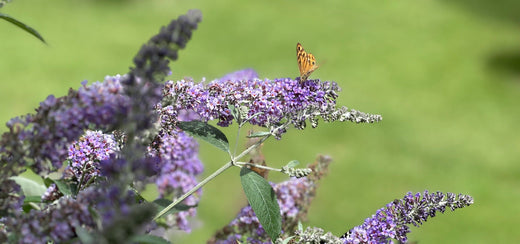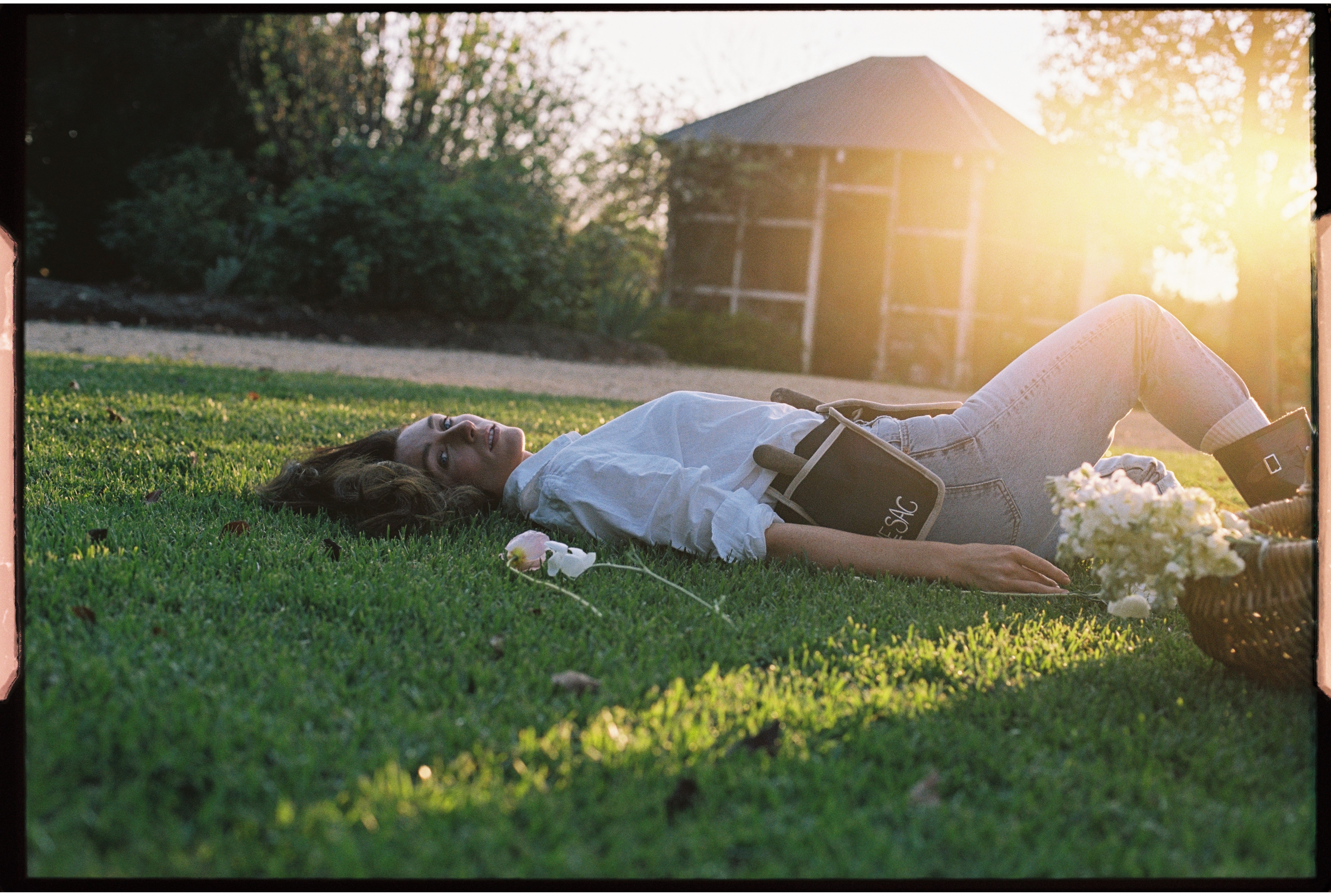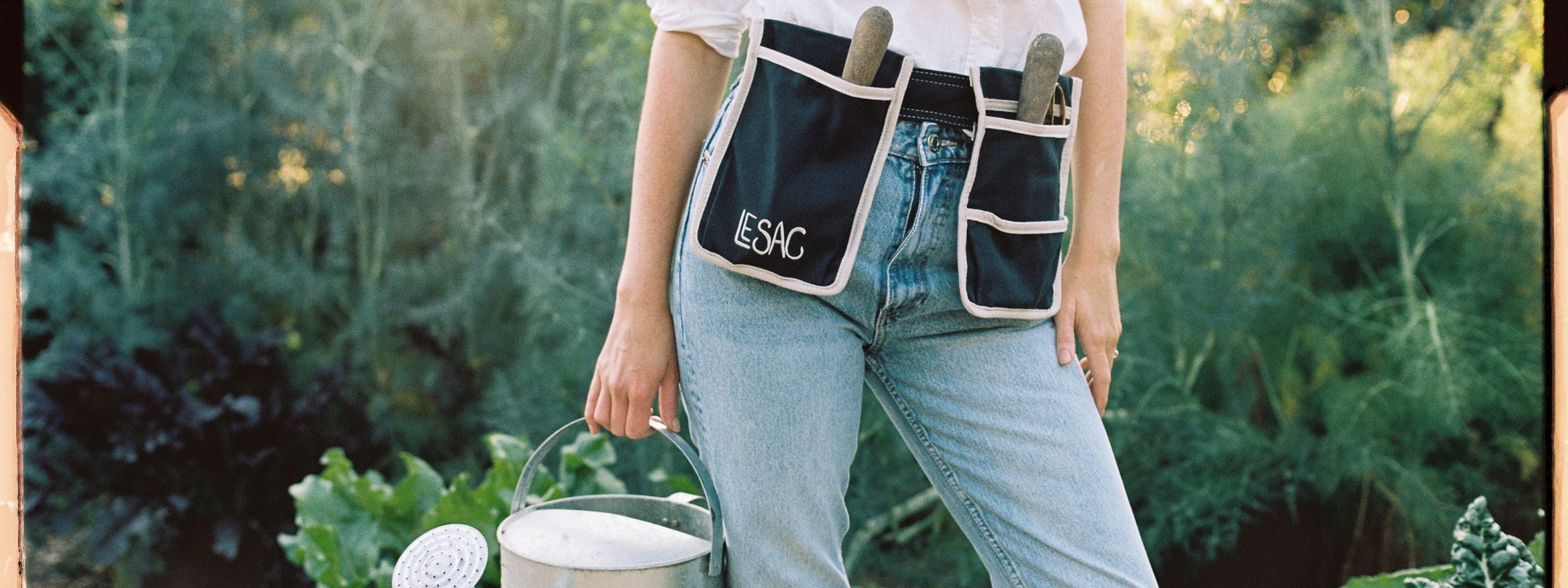
Lessons from Dry Climates
Lessons from Dry Climates
Nothing brings reality closer than leaving Sah and Hamish’s lush garden of Eden. Their floriferous flower beds, billowing rose hedges, and trees dripping with fruit are a contrast to the drive back up Big Jack onto the Monaro. Returning to Bobundara, I’m greeted by the vibrant flowers of the cardoon brightening the long beds along the front verandah. Almost nothing else is in flower. Not a single piece of fruit hangs on the many trees in the garden. The vegetable garden is a mass of flowering carrots, which I adore, but aside from a few hardy herbs, there’s little to feast on this summer.


Download our Drought-Tolerant Plants Guide here.
Still, I’ve made the most of what I have. Towering elms shade a vast outdoor room where a long table hosts lingering meals with family and friends. A stream separates the garden from the paddocks beyond, and a gravel courtyard is home to blue and white larkspurs that bloom throughout summer. These are my saviours. They thrive under my ‘nil-by-mouth’ tough-love regime, unlike my friends’ pampered gardens blessed by nightly easterlies delivering gentle moisture.
Celebrating Resilient Plants
While others may covet lush gardens, I take pride in my battlers. Teucriums, cardoons, lavender euphorbias, cistus, catmint, sage, buddleias, and many grey-leafed plants soldier on without complaint. When I first arrived at Bobundara, the red iron roof seemed to scream, “Look at me!” Seeking harmony, I climbed the hill beyond the creek, gathered eucalyptus leaves and moss from the granite boulders, and asked the paint shop in Cooma to create a colour echoing the subtle hues of the bush. Painting the verandah posts, doors, window frames, and roof in this grey allowed the nearly 200-year-old homestead to nestle into the landscape rather than dominate it.

Download our Drought-Tolerant Plants Guide here.
Lessons from Abroad
Travel has taught me much about gardening in dry climates. Observing early Australian gardens and Mediterranean landscapes, where rain is a rare luxury, has informed my plant choices. Leading tours to the Greek Islands, France, and Morocco, I’ve learned that while it’s impossible to replicate every detail, the essence can be achieved using frost-tolerant plants. For instance, I plant Pyrus nivalis (the snow pear) for its small grey leaves that mimic the olive trees that can’t survive our occasional −17°C frosts.

Inspirational Moments: Russell Page and Paolo Pejrone
Two pivotal moments shaped my gardening philosophy. The first was visiting the Giardini della Landriana, south of Rome. Here, Russell Page’s avenue of olive trees underplanted with rosemary, lavender, and sage thrives under the dry, salty winds of the Latium coast. Such inspired planting from a master designer left an indelible mark on me.

Download our Drought-Tolerant Plants Guide here.
The second was meeting Paolo Pejrone in 2017 at his garden in northern Italy. Often hailed as Italy’s greatest landscape architect, Paolo shared stories of his mentor, Russell Page, who taught him to respect the dignity of plants. Page advised, “Choose a few species you love and truly get to know them before exploring others.” Paolo’s philosophy—“learn from the place” and “simplicity, simplicity, simplicity”—resonates deeply. His garden, grown from cuttings, epitomises resilience. He’d just planted 800 cistus when I visited, proving the power of tough love: “If a plant doesn’t like you, invite it to leave.”

Finding Grace in Simplicity
Paolo’s humility and warmth left a lasting impression. His exuberance, generosity, and graciousness reminded me of my grandfather. Despite a demanding schedule, he delighted in sharing his vast, wild garden with visitors. His wisdom—to work with the climate rather than fight it—mirrors my own journey.

A Philosophy for Gardening and Life
As I sit in the Australian countryside on this hot summer’s day, I reflect on the gratitude I’ve cultivated for what’s thriving rather than lamenting what’s not. This stress-free approach to gardening aligns with my life philosophy: “It is what it is.”
Trisha x
Download our Drought-Tolerant Plants Guide here.



